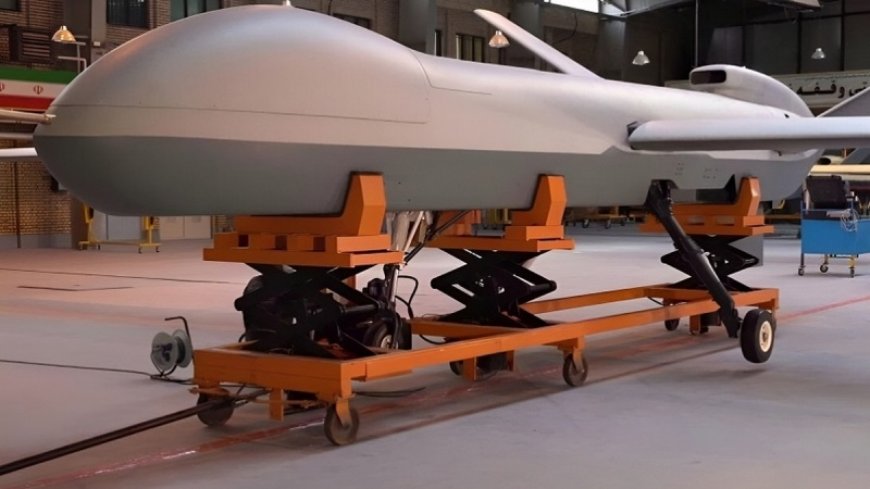A recent report by the American think tank, Foundation for Defense of Democracies (FDD), has highlighted growing concerns over the global proliferation of Iranian drones. The report underscores that Iranian drones, which have already made their presence felt in conflict zones such as Ukraine and Israel, are now being deployed across multiple continents, raising alarms about their expanding influence in global military dynamics.
The FDD report comes at a time when the Biden administration is grappling with the challenge of curbing missile and drone strikes by Iran and its regional proxies, particularly in the Middle East. The report emphasizes that Iranian weaponry, including drones, has become increasingly prevalent across the region, complicating efforts to stabilize the area and protect U.S. allies.
One of the report's key revelations is the use of Iranian-made drones by the Yemeni Ansarullah group (also known as the Houthis) in a long-range attack on Tel Aviv. The drone, capable of covering a distance of 2,600 kilometers, was reportedly responsible for the death of one person. This incident, according to FDD analysts, is indicative of the advanced capabilities of Iranian drones and their growing threat to regional stability.
Beyond the Middle East, the report highlights Iran's strategic moves to expand its influence in other parts of the world. For instance, Tehran has been actively assisting Venezuela in developing its drone capabilities. The Venezuelan military has incorporated Iranian-made drones, such as the Mohajer-2 and its variants, into its arsenal, signaling a deepening military partnership between the two nations.
In Africa, the report notes the use of Iranian drones by the Ethiopian military, specifically the Mohajer-6, which has been deployed in ongoing conflicts. Similarly, in Sudan, Iranian drones have played a crucial role in the civil war, helping government forces regain control of territories. The growing footprint of Iranian drones in these regions underscores Tehran's ambition to become a key player in the global arms market.
A particularly notable aspect of the FDD's analysis is the economic dimension of Iran's drone exports. The report cites a domestic news agency claiming that Tehran aims to capture a significant share of the global drone market by 2028, with ambitions to rival Turkey's dominance. Iran's strategy includes increasing its presence at international defense exhibitions, as evidenced by its participation in events in Malaysia, Qatar, Iraq, Saudi Arabia, Moscow, and Belgrade in 2024.
The report also touches on the evolving legal landscape surrounding Iran's arms trade. With the expiration of certain UN Security Council sanctions in October 2023, Iran faces fewer international restrictions on its weapons exports, apart from U.S. and European sanctions. This newfound freedom has likely emboldened Tehran to push its military exports further afield.
However, the FDD warns that the growing global reach of Iranian arms, particularly drones, poses significant challenges for international security. The report argues that restoring a credible deterrent against Iran is critical. Yet, with key Security Council members potentially benefiting from Iranian military technology, the prospect of imposing new international sanctions appears slim.
In light of these developments, the report advocates for robust unilateral action by the United States and its allies. It suggests targeted sabotage operations aimed at disrupting Iran's drone supply chain and degrading its weapons production capabilities. Such measures, the FDD contends, are essential to counter the expanding influence of Iranian military technology on the global stage














































